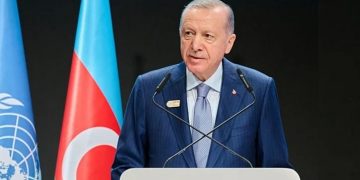A Palestinian imprisoned by Israel in July for alleged membership of an armed group has ended his hunger strike after 103 days, his wife said.
Maher al-Akhras, 49, was arrested near the occupied West Bank city of Nablus and put in administrative detention, a policy that Israel uses to hold suspects without charge.
His wife, Taghrid, told AFP news agency on Friday that Maher has “stopped his hunger strike after 103 days”.
In a phone conversation from Kaplan hospital in Rehovot, an Israeli city south of Tel Aviv where her husband is being treated, she said she was “happy” with the decision, but still “concerned” given his severe medical condition.
There was no immediate comment from Israeli authorities on whether they had offered any special assurances to Maher, who has been in an Israeli hospital suffering from heart pain and convulsions, according to his wife.
Earlier on Friday, Taghrid said that Maher was close to dying, experiencing severe cramps and headache.
Israel’s Shin Bet internal security agency says Maher was detained after it received information that he was an operative of the Islamic Jihad armed group, an allegation his wife has denied.
The father of six launched his hunger strike to protest against his four-month detention order which ends on November 26 but could be extended.
Maher had promised to continue to refuse solid food despite an October decision by Israel’s Supreme Court not to extend his imprisonment beyond that date.
But after receiving what it called “a firm commitment [by Israel] not to renew his administrative detention … Maher Al-Akhras decided to end his hunger strike,” the Palestinian Prisoners Club, which works on behalf of prisoners, said in a statement on Friday.
“He will spend the remaining period until his release receiving treatment in the hospital,” the statement added.
Five members of the Israeli parliament from the Arab Joint List, who were visiting Maher in hospital, broadcast the announcement to end the hunger strike live on Facebook.
Palestinian Prime Minister Mohammad Shtayyeh has demanded his immediate release, while Palestinians and Palestinian citizens of Israel have held demonstrations in his support.
As of August this year, about 355 Palestinians, including two minors, were being held under administrative detention orders, according to Israeli human rights group B’Tselem.
Many Palestinian prisoners say they have been subjected to torture and violence while in custody. There have been many protests against poor prison conditions in recent years, including several hunger strikes.
Many prisoners also suffer from medical negligence in jails. Prisoners must pay for their own medical treatment, and are not provided with adequate healthcare.
Al Jazeera previously reported many are given pain killers as medication and a solution to chronic illness.
According to prisoner support organisation Addameer, 4,400 Palestinian political prisoners, including 39 female and 155 children, are being held under Israeli custody as of September.
Source: ALJAZEERA













